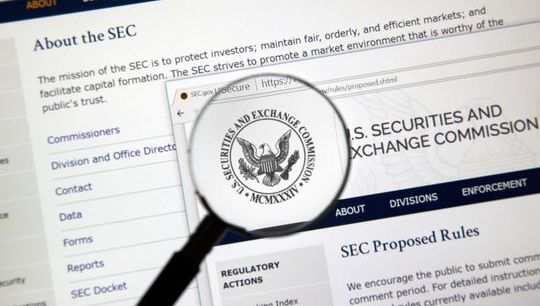Press Release: 5th Annual Global Crypto Hedge Fund Report (2023)
Published: 12 July 2023
Traditional hedge funds are divided while crypto natives remain confident despite last year’s market turbulence: Global Crypto Hedge Fund Report
- The number of traditional hedge funds investing in crypto-assets fell to 29% – down from 37% last year – however no traditional hedge fund plans to decrease exposure in 2023
- 23% of traditional hedge funds are reassessing their crypto strategy due to the regulatory environment in the US; 12% of crypto hedge funds are considering relocating from the US to crypto-friendly jurisdictions
- 93% of crypto hedge funds expect the market capitalisation of crypto-assets to be higher at the end of 2023 than 2022
- 31% of traditional hedge funds view tokenisation as the biggest opportunity in 2023; 25% of traditional hedge funds – including those not currently invested in crypto – say they are exploring tokenisation
LONDON, 12 July 2023 – While the percentage of traditional hedge funds investing in crypto-assets fell from 37% in 2022 to 29% in 2023, the confidence in the value proposition and long-term sustainability of crypto-assets appears robust.
Traditional hedge fund respondents that are currently invested in crypto-assets note they will either increase or maintain exposure, regardless of underlying market volatility and regulatory barriers that have weakened confidence in the asset class, according to the 2023 Global Crypto Hedge Fund Report.
The PwC report, produced together with the Alternative Investment Management Association (AIMA) and CoinShares, includes findings from two surveys: one from traditional hedge funds – those who may or may not invest in crypto-assets – and those from crypto hedge funds.
The report also finds that over the last year, the average allocation to crypto-assets managed by traditional hedge funds surveyed increased from 4% to 7%. Meanwhile, 93% of crypto hedge funds surveyed expect the market capitalisation of crypto-assets to be higher at the end of 2023.
When asked about plans to increase exposure, more than one-third (37%) of traditional hedge funds that do not invest in crypto-assets say they are curious but are awaiting further asset maturity – an increase from the 30% reported last year – whereas 54% of respondents say they are unlikely to invest over the next three years, an increase from 41%.
John Garvey, Global Financial Services Leader, PwC United States, said:
“Despite market volatility, a fall in digital asset prices and the collapse of a number of crypto businesses, investment in crypto-assets is expected to remain strong in 2023. Traditional hedge funds, committed to the market in the longer term, are not only increasing their crypto-assets under management, but also maintaining – if not increasing – the amount of capital deployed in the ecosystem. However, it’s clear that regulatory uncertainty and barriers increasingly weigh on investment decisions of many funds, with more than half of those surveyed noting they would likely invest/invest more in digital assets once greater transparency, regulatory certainty and risk management is in place.”
Regulatory clarity key to investor engagement
Crypto hedge funds, those that exclusively invest in crypto-assets, are demanding greater transparency and regulatory requirements following the collapse of a number of crypto businesses in 2022 in order to mitigate risk to investors and increase confidence in the asset class. These demands include the mandatory segregation of assets (highlighted by 75% of all survey respondents), mandatory financial audits (62%), and an independent statement of reserve assets (60%). Liquidity – once considered the dominant factor when selecting a trading venue – is now considered as important as platform security: 21% of crypto hedge funds surveyed selected this as their most important consideration – up from 10% last year. Following the market events of 2022, it was also noted that just over half (53%) of crypto hedge funds surveyed have upgraded their counterparty risk management processes.
Traditional hedge funds who have exposure to crypto-assets have also expressed apprehension about the evolving regulatory environment – in the US – with 23% noting it will have a material impact on them or lead them to reconsider the viability of their crypto asset exposures. Just over half (54% of traditional hedge funds not currently investing) confirmed they would change their approach and become more interested in the asset class if perceived industry barriers and uncertainties were resolved – an increase from 29% last year. In contrast, crypto hedge funds seem relatively less troubled by these regulatory developments, with only one-third expecting greater legal and compliance costs and 12% remarking that the current regulatory environment in the US may lead to them moving to more crypto-friendly jurisdictions.
Market developments weigh on investor engagement
Last year’s crypto market events – including the collapse of a number of crypto-asset service providers – were seen as overwhelmingly negative by traditional hedge fund respondents: 57% stated their outlook was negatively or strongly negatively impacted. Of those funds, 70% manage more than US$1 billion.
More than two-thirds (71%) of the traditional hedge funds surveyed are not currently invested in crypto-assets – up from 63% last year. The four main reasons for not investing in crypto-assets among traditional hedge funds – consistent with last year’s responses – include: (1) client reaction or reputation risk, (2) lack of regulatory and tax clarity, (3) insufficient or unreliable third-party data, and (4) outside the scope of current investment mandate.
Conversely, crypto hedge funds surveyed seem undeterred by recent market volatility, with half (50%) noting no impact. Almost one-third (27%) feel positive about the current market – likely as a result of greater investment opportunities as a result of a broad decline in crypto-asset valuations. In light of last year’s events, 53% of crypto hedge funds reported updating their counterparty risk management processes.
Tokenisation as a way forward
Traditional hedge funds have demonstrated a greater degree of curiosity in tokenised assets and securities – with one-quarter exploring tokenisation – compared to crypto hedge funds, of which only 15% of respondents reported exploring investments in tokenised securities. Tokenisation of funds holds the promise of increased efficiency and reducing friction by enabling faster settlement times and minimising operating costs, with around one-in-three (31%) traditional hedge funds surveyed noting tokenisation as the biggest growth opportunity in the crypto-asset space in the coming year.
Investment strategy divergence: traditional vs. crypto hedge funds
“General diversification” or “long-term outperformance” are the most common reasons given by traditional hedge funds for including crypto-assets in portfolios. More than half (54%) of traditional hedge funds who are currently investing in crypto-assets intend to maintain the same levels of capital deployed this year. 46% say they intend to deploy more capital into the asset class by the end of 2023 – down from 67% reported last year.
The vast majority (91%) of traditional hedge fund investors who have crypto-asset exposure say they are invested in the two largest crypto assets by market capitalisation and exchange volume – Bitcoin and Ethereum – up from 67% last year, indicating a shift to large cap coins and reflecting a more conservative investment approach.
No respondents report being invested in non-fungible tokens (NFTs) – compared to one in five traditional hedge funds last year – a considerable cooling since the NFT peak in 2021.
Among crypto hedge funds surveyed, the Market Neutral strategy remained the most popular strategy – although its usage declined from 30% to 20% compared to the last survey. In contrast, the use of Discretionary Long Only Crypto rose from 14% to 19%, while the usage of Quantitative Long/Short Crypto fell from 25% to 18%. This evolution likely has more to do with the current market environment than a longer-term shift in overall trading strategies. All crypto hedge fund strategies – with the exception of Market Neutral – experienced losses.
Jack Inglis, CEO of AIMA, said:
“The digital assets space has had to reckon with short-comings in its fundamental operations, including risk management, as well as allegations of corporate malfeasance. Some observable resilience in investor interest in the space, especially in newer areas like tokenisation, will provide a foundation for industry participants to rebuild confidence among institutional investors and traditional hedge funds seeking to allocate to this asset class.”
Alexandre Schmidt, Index Fund Manager at CoinShares, said:
“Crypto hedge funds have shown remarkable resilience in 2022 amid a challenging environment. The majority of the surveyed funds generated positive alpha, underscoring the essential role that these firms have in the digital asset ecosystem. As we navigate through 2023 and beyond, regulators are introducing near-term hurdles which shall pave a clearer path to investing in digital assets in the longer run, fostering higher adoption from investors across the whole spectrum, from small retail to large institutions."
-ENDS-
Notes to Editors:
About the report: The 2023 Global Crypto Hedge Fund Report examines the current state and evolution of the crypto hedge fund market over the past year. The data contained in this report comes from two surveys – the first from research conducted in Q1 2023 across a sample of 131 crypto native hedge funds. The first survey specifically focuses on crypto native hedge funds (i.e., hedge funds created with the intention of dealing primarily in crypto-assets) and excludes data from crypto index funds and crypto venture capital funds. We have worked with CoinShares to obtain survey responses from crypto native hedge funds. For the second survey, we worked with the Alternative Investment Management Association (AIMA) to obtain data from 59 ‘traditional’ hedge funds (i.e., hedge funds with some or no exposure to crypto-assets). Specifically, the survey questions were designed to understand the impact that notable market disruptions from last year had on fund managers and the report highlights key trends observed from the survey results.
About PwC: At PwC, our purpose is to build trust in society and solve important problems. We’re a network of firms in 152 countries with nearly 328,000 people who are committed to delivering quality in assurance, advisory and tax services. Find out more and tell us what matters to you by visiting us at www.pwc.com. PwC refers to the PwC network and/or one or more of its member firms, each of which is a separate legal entity. Please see www.pwc.com/structure for further details. © 2023 PwC. All rights reserved.
About AIMA: The Alternative Investment Management Association (AIMA) is the global representative of the alternative investment industry, with around 2,100 corporate members in over 60 countries. AIMA’s fund manager members collectively manage more than US$2.5 trillion in hedge fund and private credit assets. AIMA draws upon the expertise and diversity of its membership to provide leadership in industry initiatives such as advocacy, policy and regulatory engagement, educational programmes and sound practice guides. AIMA works to raise media and public awareness of the value of the industry. AIMA set up the Alternative Credit Council (ACC) to help firms focused in the private credit and direct lending space. The ACC currently represents over 250 members that manage US$800 billion of private credit assets globally. AIMA is committed to developing skills and education standards and is a co-founder of the Chartered Alternative Investment Analyst designation (CAIA) – the first and only specialised educational standard for alternative investment specialists. AIMA is governed by its Council (Board of Directors). For further information, please see www.aima.org
About CoinShares: CoinShares is Europe’s largest digital asset investment firm, managing billions of assets on behalf of a global client base. Our mission is to expand access to the digital asset ecosystem by pioneering new financial products and services that provide investors with trust and transparency when accessing this new asset class. CoinShares expanded its footprint into the equities market with the purchase of Elwood Asset Management on 6 July 2021, enabling Elwood to focus on building digital asset infrastructure for financial institutions, creating the bridge between traditional and crypto markets.








